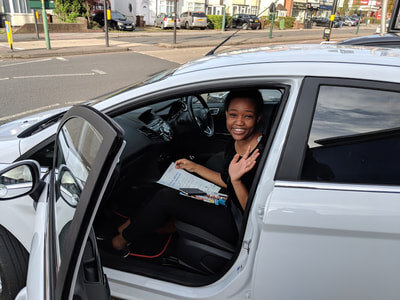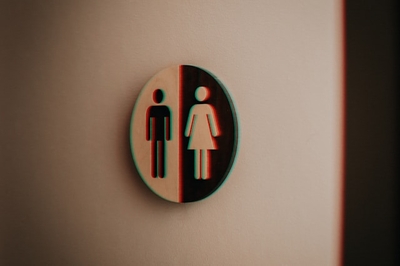
While it’s certainly ideal to pass the driving test on the first attempt, the reality is that many learners require multiple tries. According to DVSA statistics for 2017/18, the first-time pass rate was a modest 46.7%, highlighting the challenges faced by many aspiring drivers.
To delve deeper into this topic, we’ve analyzed the latest DVSA data. This analysis provides valuable insights into various factors that can influence the outcome of a driving test, including the impact of repeated attempts. By understanding these factors and implementing effective strategies, learners can significantly improve their chances of success.
In the following sections, we’ll explore the following:
- Pass Rates by Attempt: A detailed breakdown of pass rates for first-time and subsequent attempts.
- Factors Affecting Test Outcomes: Identifying key factors that can influence test results.
- Tips for Improving Your Chances of Passing: Practical advice to enhance your driving skills and test performance.
By gaining a comprehensive understanding of these aspects, you can approach your driving test with greater confidence and increase your likelihood of success.
What do the stats tell us?
As a leading driving school, RD2SuccessFastTrack receives numerous inquiries daily from learners seeking information on various aspects of the driving process, from the average number of test attempts to the time required to acquire driving skills. One of the most common concerns among learners is the driving test pass rate, often accompanied by worries about their chances of success.
Fortunately, the Driver and Vehicle Standards Agency (DVSA) regularly publishes driving test statistics, providing valuable insights. Let’s delve into the pass rates by number of attempts for 2017/18, as presented in the table below:
| Attempt | Pass rate |
|---|---|
| 1st attempt | 46.7% |
| 2nd attempt | 47.6% |
| 3rd attempt | 46.8% |
| 4th attempt | 45.6% |
| 5th attempt | 44.0% |
| 6th attempt | 38.6% |
This would even give you time to revise again if you end up failing. And, if you really want to play it safe, the one-off cost of £20 sets you up for the entire year!
Gender

The debate surrounding gender differences in driving abilities is a perennial one, with both men and women citing various statistics to support their claims. While men tend to have higher pass rates in the practical driving test, women often outperform in the theory test.
However, when examining pass rates by attempt, an interesting pattern emerges. Both genders exhibit a similar trend, with the highest pass rates occurring on the second attempt and gradually declining thereafter. Men consistently maintain a slight advantage over women at each attempt, although this gender gap tends to narrow with subsequent attempts. For instance, the initial difference in pass rates between men and women is 7.3%, which diminishes to 5.6% by the sixth or subsequent attempt.
Age
The debate between younger and older drivers often sparks interesting discussions. While experienced drivers possess valuable road knowledge, younger drivers tend to outperform their older counterparts in driving tests.
A notable trend emerges: younger drivers, particularly 17-year-olds, exhibit higher pass rates. This success rate gradually declines as age increases, with those in their early 30s facing lower chances of passing.
Interestingly, the youngest age group maintains consistently high pass rates across multiple attempts. In contrast, older age groups often achieve their highest pass rates on the first or second attempt. This disparity may be attributed to factors such as time availability, confidence levels, and potential distractions.
Regardless of age, perseverance and dedication are crucial for driving test success.
Failing isn’t always a bad thing…
While passing the driving test on the first attempt is undoubtedly a desirable outcome, it’s essential to acknowledge that it’s not the sole determinant of a driver’s competence. Research has consistently shown that individuals who require multiple attempts to pass their driving test often exhibit safer driving behaviors. This trend can be attributed to several factors:
Enhanced Skill Development:
- Increased Practice Time: Multiple attempts necessitate additional driving lessons and practice sessions, providing ample opportunities to refine driving skills and build confidence.
- Deeper Understanding of Road Rules: Repeated exposure to the Highway Code and other road regulations fosters a more thorough understanding of traffic laws, leading to safer driving habits.
Reduced Overconfidence:
- Humility and Caution: Individuals who face challenges in passing the test may develop a more cautious and humble approach to driving, reducing the likelihood of taking unnecessary risks.
- Greater Appreciation for Road Safety: The experience of multiple attempts can instill a stronger sense of responsibility and a greater appreciation for the importance of safe driving practices.
In contrast, those who pass the test on the first try may exhibit a tendency towards overconfidence, potentially leading to riskier driving behaviors. The additional driving lessons and practice sessions required for subsequent attempts provide valuable experience and contribute to the development of safer driving skills.
Therefore, while aiming to pass the driving test on the first attempt is commendable, it’s crucial to maintain a positive mindset, regardless of the outcome. Focus on continuous learning, practice, and a commitment to safe driving, and you’ll be well-prepared to navigate the roads confidently.
Second driving test: FAQs
How likely am I to pass my driving test?
While analyzing pass rates and statistics can be intriguing, the ultimate factor determining your success in the driving test lies within your own dedication and commitment. By selecting the appropriate driving course and actively collaborating with your instructor, you can significantly enhance your chances of passing. Remember, perseverance is key. If you encounter setbacks, embrace the opportunity to learn from your experiences and strive for improvement.
What if I fail the first time?
While it’s certainly ideal to pass the driving test on the first attempt, it’s important to remember that not everyone achieves this goal immediately. If you find yourself in this situation, don’t let disappointment discourage you. Instead, view it as an opportunity for growth and improvement.
Take the constructive feedback provided by your driving examiner to heart, and dedicate additional practice time with your instructor to address any specific areas of weakness. By embracing this approach, you’ll be well-equipped to confidently retake the test and ultimately achieve your driving goals.
What if I don’t agree with the examiner’s mark?
Driving examiners are highly trained professionals who conduct thorough assessments of learner drivers. While appeals are possible, they typically result in a rescheduled test rather than a review of the original assessment.
Is there a way to increase my chances of passing?
While some driving schools may make bold claims, there’s no guaranteed method to pass the driving test. The key to success lies in consistent practice and focusing on areas of weakness. A refresher course can be an excellent investment, providing targeted instruction and practice to enhance your driving skills and increase your chances of success on your next attempt.
My new test is months away. How do I get an earlier date?
Want to accelerate your driving journey? RD2SuccessFastTrack can help you secure a driving test date weeks or even months ahead of your current estimated wait time. Simply call us on 0742 914 4805 or book a test online to get started.
How many driving tests am I allowed to take?
While there’s no limit to the number of driving tests you can take, there’s a mandatory waiting period of ten working days between each attempt. To maximize your chances of success, ensure you allocate sufficient time for practice sessions before each test. This will help you address any specific areas of concern and regain your confidence.
Am I allowed to start driving right away after passing?
Congratulations on passing your driving test! You will receive a test pass certificate and are now legally permitted to drive independently, provided you have the necessary insurance coverage. Consider exploring our guide on young driver insurance for further information. In the meantime, enjoy the moment and let your instructor drive you home.
When will I get my full driving licence?
Following your successful driving test, the examiner will inquire if you’d like to apply for your full driving license immediately. If you choose to do so, they will collect your provisional license and forward it to the DVLA. You can expect to receive your full license within approximately 3 weeks. Alternatively, you have the option to submit the application for your full license independently.

